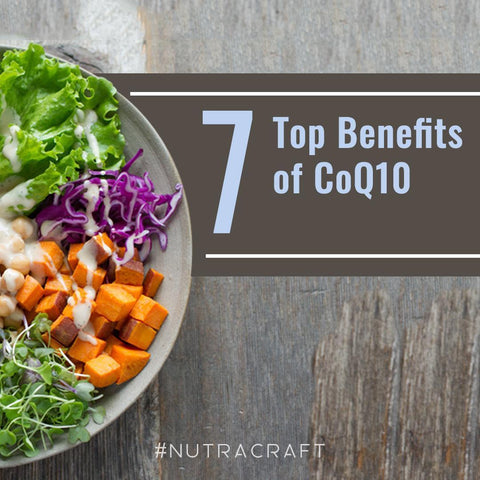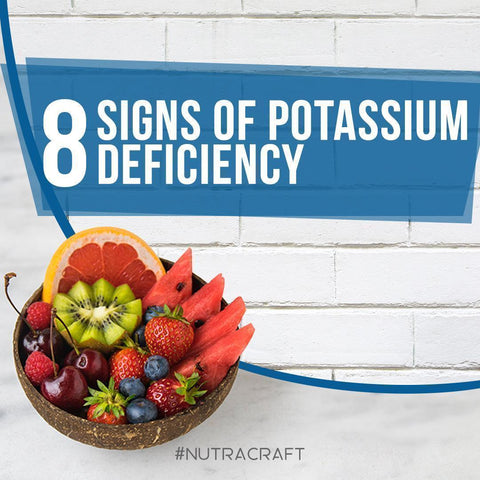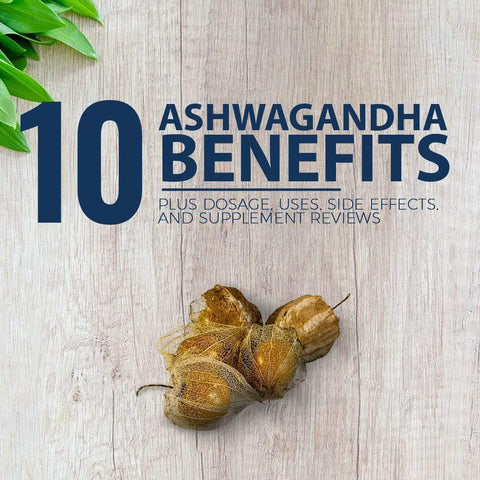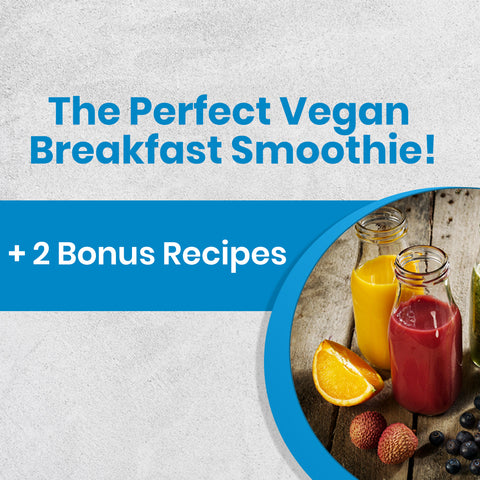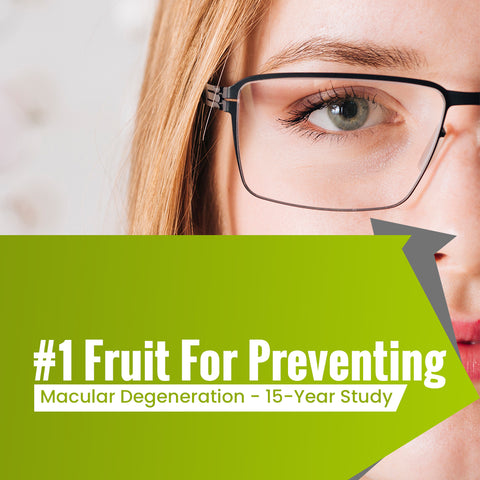
French fries, pizza, burgers, grilled cheese sandwiches ... does this sound like your diet?
The bulk of the food we eat should not be processed or low-nutrient foods like these. We are meant to eat lots of colorful plant foods. Fruits, veggies, nuts, whole grains, and beans should be the foundation of a healthy diet. You know the drill! You’ve heard it before!
There are so many reasons to eat colorful antioxidant-rich plant foods, and their potassium content is one of those reasons.
To get enough potassium, you’ve need to eat enough fruits, veggies, and other potassium-containing foods. Our closest relatives in nature (think monkeys) are climbing trees to gather juicy fruits and big green leaves. They’re wiser than you think, and you should take a page out of their playbook.
Most people in the modern world need less salt and more potassium in their diets. Less heavy and salty food, and more fruits and vegetables.
Are You Potassium Deficient?
You could be potassium deficient if you’re not eating enough healthy foods. Read through the list and decide whether you notice any of these signs in you.
8 Signs Of Potassium Deficiency
1. Bloating / Water Retention

Many people struggle with bloating. It makes them look fatter than they are and leaves them confused as to why they're not losing weight.
Sometimes, bloating is caused by potassium deficiency. Without enough potassium, your body has trouble getting rid of salt, which will leave you looking puffy. You might have noticed that you feel bloated after a high salt meal. That extra sodium causes your body to hang on to more water than it should [1].
When you start getting enough potassium, your body gets rid of sodium more easily [2].
Exclusive Bonus! Download the FREE report ‘5 Top Supplement for Optimum Health’ by clicking here.
2. High Blood Pressure
Another common symptom of low potassium is high blood pressure.
Since fruits and veggies have so much potassium in them, it’s very important to eat them for your heart health.
Potassium has been shown to lower blood pressure in people eating high-salt diets [3]. As this blood pressure-lowering effect “lowers the incidence of stroke … coronary heart disease, [and heart attacks]” [4].
3. Muscle Cramps

If you get muscle cramps after you exercise, you could be low in potassium because electrolytes like potassium regulate how muscles contract. If you don’t have electrolytes to calm your muscles, you could experience contractions.
In rare cases, you can actually get cramps from overloading on potassium, so balance is key[5]!
4. Heart Palpitations
Low potassium can cause irregular heart beats. Potassium regulates the electrical and muscle function of your heart in many, very complicated ways [6]. And the heart must function well to keep you alive!
You can think of potassium as a guardian of your heart and the way it works. Without this mineral, you’re much more likely to have heart palpitations [6].
5. Fatigue
Fatigue is a very common sign of potassium deficiency [7]. It’s no surprise because potassium plays a critical role in the production of energy in your cells.
In all of your cells, there are organelles called mitochondria that produce cellular energy. Mitochondria produce energy “in exchange for” potassium [8]. So you’ve gotta feed your cells potassium!
6. Constipation
If you’re not having enough bowel movements, make sure you’re eating fruits and veggies. Potassium affects how your gut muscles contract and whether they’re allowing you to release poop [9]!
7. Nausea

Feeling sick to your stomach is another classical clinical sign of low potassium.
8. Numbness And Tingling
Potassium affects how your nerves transmit signals and without enough potassium, you might get numbness and tingling in your hands, feet, arms, or legs. The tingling comes from the weakening of electrical signals in your nerves.
What Do You Do if You ARE Potassium Deficient?
If you notice yourself experiencing some of these signs, eating more potassium-rich foods should help.
The easiest way to get enough potassium is to eat a wide variety of fruits and veggies.
There is a substantial amount of potassium in a few other foods as well. Potatoes have a lot of potassium (especially sweet potatoes). Beans and fish also have potassium.
Here’s WebMD’s more thorough list of potassium-rich foods.
Potassium Supplements

You can also supplement with potassium, but if you are going to take it on a consistent basis, you might want to have your doctor guide you because very high amounts of potassium can have bad effects, just as low levels can.
Some medications, for example, can raise potassium levels too high. So be careful about supplementing in those cases..However, if you’re not getting enough potassium-rich foods in your diet, you can supplement with small extra amounts of potassium found in supplements.
Three Good Potassium Supplements
1. Now Foods, Potassium Citrate, 99 mg, 180 Capsules
Now Foods’ supplement offers potassium for a very cheap price (around 5-6 dollars) and contains simple and safe ingredients and is free from allergenic ingredients. The 180 capsules could easily last you 6-12 months depending how often you use them.
2. Jarrow Formulas, Potassium Citrate, Skeletal Health, 99 mg, 120 Tablets
Another cheap and reliable potassium option. Both Now Foods’ and Jarrow’s supplement contains potassium citrate, an absorbable and therapeutic form of the mineral so you don’t need to take as much to get the same benefits. Customer reviews show that people are very satisfied with Jarrow’s formula.
3. 21st Century, Potassium Gluconate, 595 mg, 110 Tablets
If you want to go really cheap, try out this supplement. It’s only around 2-3 dollars and has some impressive attributes like being laboratory-tested for purity. 21st Century’s pills contain a different form of potassium - potassium gluconate. This form has been shown to be just as absorbable as potassium from potatoes, so it’s good for use [10].
Don’t Let Yourself Be Deficient In Potassium
There are plenty of ways to get potassium. Eat whole, unprocessed plant foods and supplement with potassium if you need to. Enjoy the health-giving effects of this much needed mineral!
Suffering from irritability? Mood swings? Tiredness and sluggishness?
A nutritional deficiency could be to blame.
Fortunately, you can help your body recover safely and naturally by taking the right kinds of supplements.
Know What the Best Supplements Are for Your Age and Gender?
Most people don’t realize that there are supplements that are ideal for every age range and gender, and sometimes taking a multivitamin may not be enough.
Master Herbalist, Dr. Donna Schwontkowski, reveals exactly what to do to help you look and feel your best at any age with the top supplements needed for optimum health.
Download this FREE report now by clicking here.






